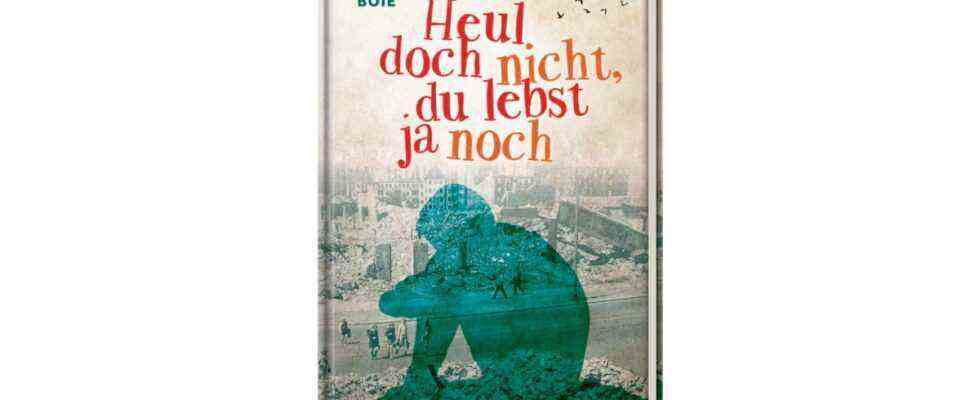Kirsten Boie’s new contemporary historical novel “Don’t cry, you’re still alive” takes place in Hamburg in the early summer of 1945. Since the end of the war, the population has been trying to survive under English occupation among ruins, including three young people: Jakob, whose Jewish mother was on one of the last transports was taken to Theresienstadt (but survived) – he is hidden by an old man and does not yet know that the war is over. When his helper no longer shows up, he has to leave his hiding place in the ruin in order not to starve to death. He meets Traute, the daughter of a baker, and secretly steals the bread from her, which she brings as a bribe for the boys on the street. Her friends were bombed or disappeared in the turmoil of war, and she just wants to play soccer with the boys because she is lonely. Among them Hermann, who is still wearing his Hitler Youth uniform and has to look after his father, who has amputated his leg and in his desperation makes life difficult for the family. In doing so, he robs him of the prospect of a new beginning in the USA.
She wants to bring her own feelings, her experiences, to life for her readers now, 70 years later.
These young people meet each other by chance in a week, at the end of June 1945. They are shaped by their war experiences and trauma and together they make their special experiences in the chaos of post-war Hamburg. Kirsten Boie lets them, as figures of identification, tell the story themselves, without the influence of adults – in a mixture of documentary and fiction, in which she uses the opportunity as a narrator to give them hope for a better future.
Now, 70 years later, she wants to bring her own feelings, her experiences, to life for her readers, which she described in “Monis Jahr” in 2003 and in “Ringel Rangel Rosen” in 2010. “Everything that moves me quickly turns into stories for me.” In an interview, she says that she listened to the adults talking “about the war, the nights of bombing and the time of hunger”, but at the time didn’t learn anything about the crimes of the National Socialists, especially the Shoah in Hamburg. And that’s why Jakob now plays an important role as a member of the Jewish community in Hamburg. When the children discover him trying to steal food, he conceals his Jewish identity and becomes friends with Hermann, who still adheres to the Nazi ideology. Only when he realizes the true origin of Jakob – with whom he tries to get groceries on forays into the black market – is he confronted with the reality of the persecution of the Jews.
In Hermann, Kirsten Boie describes a representative of the survival of National Socialist ideas, which worries her, especially among today’s young people “who, in increasing numbers and at an ever younger age, develop an admiration for National Socialism, even for the Second World War, because they age-typical fantasies of grandiosity as conquerors and rulers of the world”. (from 13 years and adults)
Kirsten Boie: Don’t cry, you’re still alive. Oetinger, 2022. 192 pages, 14 euros.

